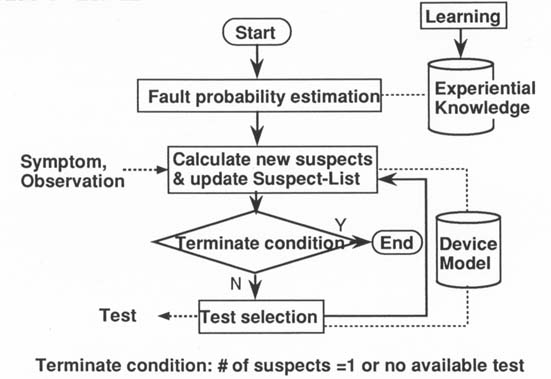
Basic System Flow
RESEARCH GOAL Advances in modern technology have produced complex electronic devices, such as switching systems, and their maintenance tasks have become seri- ously difficult. A solution to automate the maintenance task is the expert system technology, which represents interviewed expert knowledge in a rule form. However, the technology has been applied to only small scale devices, because the knowledge base construction is difficult. To eliminate this prob- lem, model-based diagnosis approaches have been investigated. Since model based systems utilize design knowledge of target device structure and be- havior, they do not require expert interviews. However, because they lack experiential knowledge of human experts, it can not perform efficiently. The research goals are, to add a function to utilize experiential knowledge to model-based diagnosis systems, to realize an efficient learning function which acquires the experiential knowledge from past cases, and to realize parallel implementations of the complex functions for fast computation. SYSTEM OVERVIEW
 Basic System Flow |